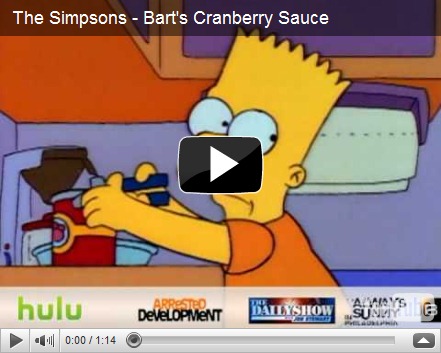There is an interesting current essay in Slate: MFA v NYC by Chad Harbach. There’s a lot to digest in the essay and, at first, I was mostly struck by how it fit in with my recent reading about the business of writing and John Scalzi’s suggestion that MFA programs teach the business of writing. After reading this essay by Harbach, I realize that the business of writing needs more definition. But the essay covers a broad array of issues and includes good discussion about the pressures that produce short stories versus the pressures that produce novels which I found very interesting.
Harbach takes as his starting point a 2009 book by Mark McGurl called The Program Era: Postwar Fiction and the Rise of Creative Writing which, according to Harbach, seeks to shatter some myths about fiction writers who teach in MFA programs. According to Harbach, McGurl wants these writers
“to look across that hallway and notice a bunch of graduate students and professors sitting there, in identical offices, wielding identical red pens. You're like me now! is one of the cheerful subtexts of The Program Era—a literary critic's pointing-out that the creative writer is just as institutionally entangled as the critic has long been acknowledged to be. Or, more charitably put (for McGurl is perpetually charitable), that the fiction writer, at last, can cease fretting about how free and wild he is and get to work.”
Harbach, however, is more interested in looking at the kind of work that writers who work for Universities are doing and how that work compares to the work of writers who leave the academic environment, a difference he calls the MFA vs. NYC experience (since most non-academic writing is published out of NYC). And he is specifically interested in how these different paths affect the ability of a person who wants to write (and who can write) to actually be a writer or, in other words, to actually make a living from their writing.
Harbach wants critics to “venture a new, less normative distinction, based not on the writer's educational background but on the system within which she earns (or aspires to earn) her living: MFA or NYC.”
… it's safe to say that the university now rivals, if it hasn't surpassed, New York as the economic center of the literary fiction world. This situation—of two complementary economic systems of roughly matched strength—is a new one for American fiction. As the mass readership of literary fiction has peaked and subsided, and the march of technology sends the New York publishing world into spasms of perpetual anxiety, if not its much-advertised death throes, the MFA program has picked up the financial slack and then some, offering steady payment to more fiction writers than, perhaps, have ever been paid before.
All of this reminded me of the recent series of blog posts by John Scalzi in which he wondered why MFA programs were not offering their students more education in the business of writing. What he meant by the business of writing was the business of writing in the NYC model. Maybe the fact that the MFA program is offering better employment opportunities to writers than the NYC path is one of the reasons it hasn’t occurred to them to offer a course in the business of writing. They would be teaching their students to negotiate against the University system. Which, in my opinion, is not a bad idea.
But Harbach is not particularly interested in the contents of an MFA program. He is primarily interested in how these two systems of making a living have created two literary cultures. It’s all very interesting and I encourage you to read it. Here’s his main thesis:
Each culture has its own canonical works and heroic figures; each has its own logic of social and professional advancement. Each affords its members certain aesthetic and personal freedoms while restricting others; each exerts its own subtle but powerful pressures on the work being produced.
Of course some writers can slip back and forth between the two cultures.
He also points out something that is probably obvious to people who are involved in the writing industry but that was new to me: one culture is a culture of short stories (MFA) and one is a culture of novels (NYC). I had never really thought about this before.
It occurred to me that maybe this is why I have an antipathy to the concept of MFA programs – because I don’t like short stories all that much. I’ve always justified my dislike of the idea of MFA programs because they seem to prey on people’s hopes and dreams, taking their money without giving them anything much in return. I had a vague feeling that MFA programs produce a lot of literature that no one wants to read. Nobody needs to pay $40-80 thousand dollars to create literature that no one wants to read, you can do that for free in your own house.
Harbach says it much better than I ever could:
Thus the names that reverberate through the MFA system, from the freshman creative writing course up through the tenured faculty, tend to be those of story writers. At first glance, this may seem like a kind of collective suicide, because everyone knows that no one reads short stories. And it's true that the story, once such a reliable source of income for writers, has fallen out of mass favor, perhaps for reasons opposite to that of the poem: If in the public imagination poetry reeks suspiciously of high academia—the dry, impacted arcana of specialists addressing specialists—then the short story may have become subtly and pejoratively associated with low academia—the workaday drudgery of classroom exercises and assignments. The poet sublimates into the thin air of the overeducated Ph.D.; the story writer melts down into the slush of the composition department. Neither hits the cultural mark. A writer's early short stories (as any New York editor will tell you) lead to a novel, or they lead nowhere at all.
What he doesn’t say, but what I always think, is that people who hand over $40,000 for the privilege of being unread are … well, a little bit stupid. I always think that and then I feel guilty. After all, if the MFA program is preying on these people’s hopes and dreams then THEY are the victims. But it isn’t necessary to feel sorry for the victim in order to judge the victimizer guilty.
Harbach sees it another way and I’m glad to be able to consider this other point of view. He writes:
The [MFA student ]lives in a college town, and when she turns her gaze forward and outward, toward the future and the literary world at large, she sees not, primarily, the New York cluster of editors and agents and publishers but, rather, a matrix of hundreds of colleges with MFA programs, potential employers all, linked together by Poets & Writers, AWP, and summertime workshops at picturesque make-out camps like Sewanee and Bread Loaf. More links, more connections, are provided by the attractive, unread, university-funded literary quarterlies that are swapped between these places and by the endowments and discretionary funds that deliver an established writer-teacher from her home program to a different one, for a well-paid night or week, with everybody's drinks expensed: This system of circulating patronage may have some pedagogical value but exists chiefly to supplement the income of the writer-teacher and, perhaps more important, to impress on the students the more glamorous side of becoming—of aspiring to become—a writer-teacher.
For the MFA writer, then, publishing a book becomes not a primary way to earn money or even a direct attempt to make money. The book instead serves as a credential.
This piece was also food for thought on my earlier question about why would-be writers don’t seem to read more. Well, maybe they are reading things that I’m not reading, especially if they are in MFA programs. It turns out that only the public doesn’t read short stories. In college everyone reads short stories (a fact that I remember from college) and so the market for all of these MFA short stories isn’t me, it is the MFA programs:
To learn how to write short stories, you also have to read them. MFA professors—many of them story writers themselves—recommend story collections to their students. MFA students recommend other collections to one another; they also, significantly, teach undergraduate creative writing courses, which are built almost exclusively around short works. In classes that need to divide their attention between the skill of reading and the craft of writing (and whose popularity rests partly on their lack of rigor), there's no time for ploughing through novels.
This, he says, means that the canon for MFA writers tend to be short stories. That means that, more likely than not, I won’t have read them.
The entire essay is well worth reading and I hope to read the thoughts and responses of other people to this essay. In some ways it is a hopeful essay but in other ways it is depressing. He is equally interesting writing about the problems on the NYC path to writing. He admits it is skewed to the white, male writer and that the MFA programs have opened up many more opportunities for women writers. He acknowledges the pressures from the publishing industry on the form of the novel:
In short, the writer who hopes to make a living by publishing—whether wildly successful like Franzen, more moderately so, or just starting out—is subject to a host of subtle market pressures, pressures that might be neutral in their aesthetic effects, but which enforce a certain consistency, and a sort of Authorial Social Responsibility. Regardless of whether reading comprehension and attention spans have declined, the publishers think that they have, and the market shapes itself accordingly. The presumed necessity of "competing for attention" with other media becomes internalized, and the work comes out crystal-clear. The point is not that good books go unpublished—to the contrary, scores of crappy literary novels continue to get snapped up by hopeful editors. The point is that market forces cause some good books to go unnoticed, and even more—how many more?—to go unwritten.
He also acknowledges that the short attention span in the publishing world means that those who write in the MFA universe, whose stories are anthologized and taught and studied may, in fact, enjoy longevity.
But, as he somewhat depressingly concludes, this may mean that writers will, more than ever, write for other writers. As a reader, and especially as a reader who has little interest in short stories, I find this particularly depressing.

